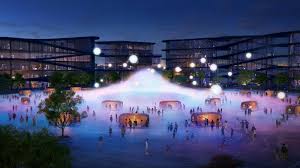
Breaking News
 Energy and Wealth: The Correlation That Built Nations
Energy and Wealth: The Correlation That Built Nations
 Cloudflare, X and Other Things Down Today
Cloudflare, X and Other Things Down Today
 Calisthenics Are Making a Comeback as Americans Return to Bodyweight Training
Calisthenics Are Making a Comeback as Americans Return to Bodyweight Training
 World War III Unfolding Before Our Eyes
World War III Unfolding Before Our Eyes
Top Tech News
 NASA announces strongest evidence yet for ancient life on Mars
NASA announces strongest evidence yet for ancient life on Mars
 Caltech has successfully demonstrated wireless energy transfer...
Caltech has successfully demonstrated wireless energy transfer...
 The TZLA Plasma Files: The Secret Health Sovereignty Tech That Uncle Trump And The CIA Tried To Bury
The TZLA Plasma Files: The Secret Health Sovereignty Tech That Uncle Trump And The CIA Tried To Bury
 Nano Nuclear Enters The Asian Market
Nano Nuclear Enters The Asian Market
 Superheat Unveils the H1: A Revolutionary Bitcoin-Mining Water Heater at CES 2026
Superheat Unveils the H1: A Revolutionary Bitcoin-Mining Water Heater at CES 2026
 World's most powerful hypergravity machine is 1,900X stronger than Earth
World's most powerful hypergravity machine is 1,900X stronger than Earth
 New battery idea gets lots of power out of unusual sulfur chemistry
New battery idea gets lots of power out of unusual sulfur chemistry
 Anti-Aging Drug Regrows Knee Cartilage in Major Breakthrough That Could End Knee Replacements
Anti-Aging Drug Regrows Knee Cartilage in Major Breakthrough That Could End Knee Replacements
 Scientists say recent advances in Quantum Entanglement...
Scientists say recent advances in Quantum Entanglement...
 Solid-State Batteries Are In 'Trailblazer' Mode. What's Holding Them Up?
Solid-State Batteries Are In 'Trailblazer' Mode. What's Holding Them Up?
Toyota To Develop 175-Acre A.I. "City Of The Future'"

Announced by CEO Akio Toyoda during a Monday presentation at the 2020 Consumer Electronics Show (CES) in Las Vegas, the ambitious project built on the site of a former car factory has been referred to by Toyota as the "Woven City," due to its integration of three types of transportation.
The community was designed by Danish architect Bjarke Ingels, whose firm designed the 2 World Trade Center building in New York, as well as Google's Silicon Valley and London offices, according to Reuters.
One street would be for faster vehicles, while a second street will be for lower-speed personal mobility vehicles such as scooters and bikes, along with pedestrians. A third would be a "park-like promenade for pedestrians only," according to The Verge.
"These three street types weave together to form an organic grid pattern to help accelerate the testing of autonomy," says Toyota.
Employee residences would be equipped with AI-guided smart home technology and robotics.
The residencies would be equipped with smart home technology, such as in-home robotics to assist with daily living. "The homes will use sensor-based AI to check occupants' health, take care of basic needs and enhance daily life, creating an opportunity to deploy connected technology with integrity and trust, securely and positively," the company said. -The Verge



